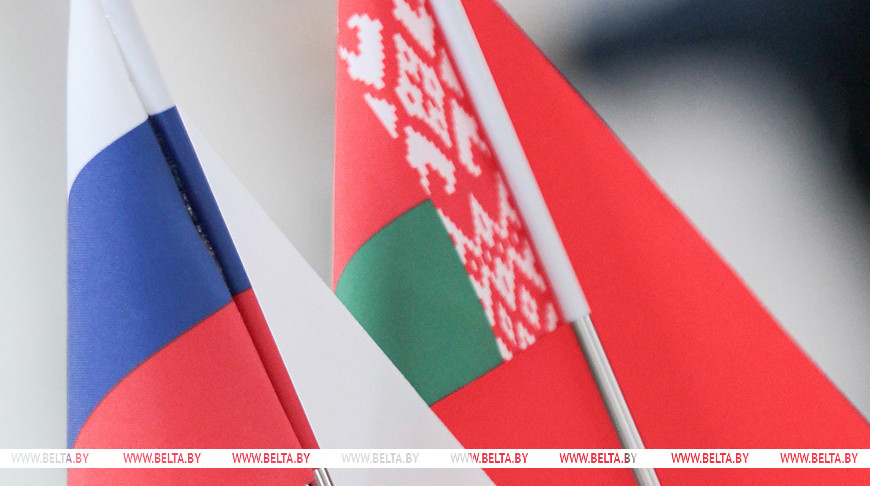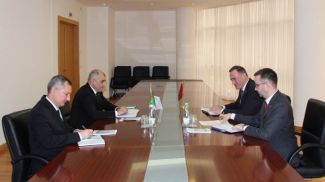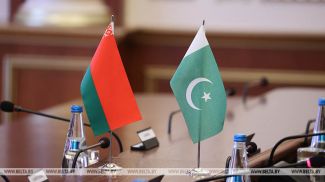
MOSCOW, 25 November (BelTA) - The Minsk International Conference on Eurasian Security has become an important platform for discussing stability on the continent, Belarusian Foreign Affairs Minister Maxim Ryzhenkov told the media, BelTA has learned.
According to the diplomat, the security mechanisms established during the Cold War era, such as the Helsinki process, which culminated in the creation of the OSCE, have begun to falter due to the positions of the European Union and NATO countries. These states, he said, decided that dialogue and cooperation were no longer necessary and instead sought to impose mentorship, or in other words, to instruct countries that do not follow the Western model of external or internal development.
“Today this has effectively become an instrument of pressure, coercion, and punishment,” the minister noted. “That is why more and more states, their representatives, and analysts within the region and beyond are considering jointly creating new mechanisms based on very transparent approaches enshrined in the UN Charter and international law. These approaches imply mutual respect among states, equality in international affairs, and non-interference in internal matters.”
According to Maxim Ryzhenkov, this work should lead to the formation of a space where specific guarantees are upheld and where everyone's cultural diversity is respected. “Its ultimate goal must be to strengthen overall trust, improve citizens’ welfare, ensure stability, and foster a sense of equal and indivisible security – the very goal we, together with Russia, are advocating,” he added.
“The European Union as a political system, led by its current leadership, remains distant from participation in such mechanisms. Yet the Hungarian foreign minister and representatives of various EU analytical centers have gladly taken part in our conference for several years. We proceed from the fact that, for now, our involvement is developing further eastwards. Naturally, we are not shutting ourselves off from the European Union,” the diplomat emphasized.
The minister noted that by restricting interaction with Belarus and Russia, the European Union is isolating itself from the world. In fact, today only a few border crossings in Lithuania and Poland connect it with the vast expanse of Eurasia.
“We see this self-isolation reflected in the decline of development in the respective states, reduced funding for infrastructure and social projects, and a worsening economic situation. But if pragmatic interests begin to surface in the EU, reflecting what the people would like to see from their politicians, then, certainly, they too will find value in our model of thinking about the future of the greater Eurasian region,” Maxim Ryzhenkov said.
Russian Foreign Minister Sergey Lavrov, in turn, remarked that the Minsk International Conference on Eurasian Security opens its doors to all countries of the continent. According to him, the Munich Security Conference has discredited itself by ceasing to invite participants with alternative points of view.
“Yet some Europeans are beginning to wonder: ‘What comes next? We are neighbors, and at some point relations will have to be restored.’ For example, having briefly shed his Russophobic nostalgia, the president of Finland spoke on this very topic, acknowledging that relations with Russia will have to be restored. The verb ‘restore’ was used intuitively, because they want to restore relations within structures they control,” Sergey Lavrov said. “All of this reflects Euro-Atlantic models that have exhausted themselves. The Eurasian approach to security is the only viable one.”
The Russian foreign minister stressed that participants in the Minsk security conference impose nothing on anyone. The organizers open the doors to all and seek to shape a concept of a future security architecture that will suit all countries of the continent. The European Union, however, still retains a colonial mentality and is not ready to develop common approaches.
“Belarus’ initiative is future-oriented, and we actively support precisely this Eurasian approach to security issues. It is a single geopolitical space, and the approach to ensuring security must be unified, reflecting the balance and interests of all countries of the continent, rather than depending on the desire of the western part of Eurasia to dictate everything,” he stated.













